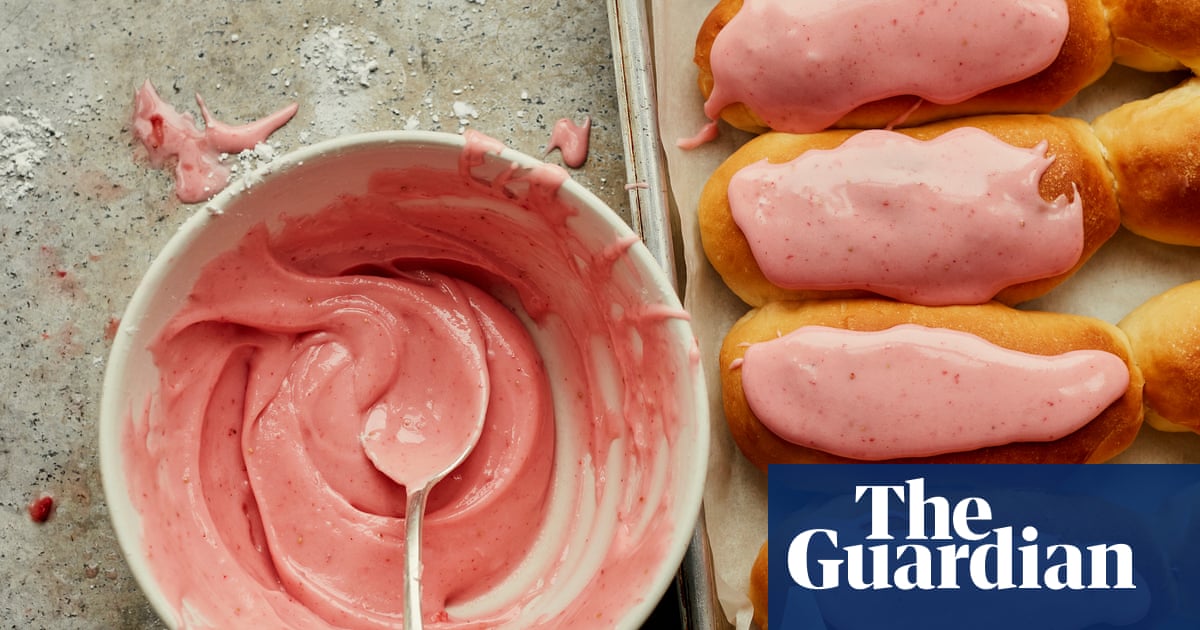Do you wish you were a princess? Do you crave being cosseted and showered with gifts, having every door opened and every chair pulled out? Perhaps you’d rather not pay for your clothes; maybe you’re sick of deciding what to eat and where.
Courtney Palmer can help. The self-proclaimed housewife princess has a series of TikTok videos on “princess treatment” and how to get it. It’s a matter of accepting compliments graciously, dressing the part, being unapologetically good to yourself (disappointingly, this seems to mean exercising and drinking water) but mostly ministering to your partner, who is treated as a weirdly needy and highly suggestible man-baby. Would-be princesses should create a calm, frictionless domestic paradise for their provider prince, “speaking in a feminine way – we’re not screaming, yelling; we’re not cursing”, thanking him for picking up his dirty underwear. Princess treatment is the reward and it comes in the form of diamond earrings, Chanel flats, flowers and old-school chivalry.
It’s emetic and, in a recent TikTok that catapulted Palmer into a more critical spotlight, disturbing. Explaining what princess treatment looks like at a restaurant, Palmer said: “I do not interact with the waitress; I do not open any doors and I do not order my own food … You do not need to talk unless you are spoken to … You’re not going to be laughing loudly, speaking loudly, demanding the attention of the restaurant.” Yikes.
Palmer called it “letting your husband lead and be masculine” and “a fun princess treatment thing”. Commenters found it cult-like, concerning and bizarre. “As a former waitress, I would have slipped you a note and asked if you’re OK or if I should call the police,” one said.
I do wonder how real any of this is. Does “princess treatment” exist beyond its social-media shop window? Tradwives aren’t tradwives, after all – they are content creators, and winding people up with jaw-droppingly regressive gender messaging generates revenue: outrage drives eyeballs and eyeballs mean dollars. Nara Smith, famed for wearing OTT dresses while making her own bubblegum and breakfast cereal, was recently reported by Cosmopolitan to be earning an estimated $200,000 a month on TikTok.
Most relationships are nothing like what Palmer presents, or like other pearly-toothed, wholesome TikTok couples who jokily quiz each other on what constitutes princess treatment or a relationship “bare minimum”. My own husband occasionally gives me “goose treatment” – a careful wide berth – but our marriage is not a transactional game. Couples of all varieties mostly muddle through, trying to be decent to each other.
But Palmer et al are servicing a real aspiration, or at least a relatable fantasy. I get it, kind of – it would be nice if every day were like my birthday (but not nice enough to spend my life cooking and cleaning while wearing broderie anglaise to achieve it). And I suppose that in a time of global turmoil, having a “provider” can feel like security. But it’s the opposite: relinquishing autonomy – bodily, financial, intellectual – leaves women dangerously vulnerable.
And this stuff isn’t anodyne: it confirms the manosphere’s misogynistic assumptions about “alphas” and “high-value females”, and empowers rollers-back of reproductive rights, reinforcing the idea that it’s OK to take decisions on women’s behalf (they don’t even want to order a side of fries for themselves!).
The “princess” label is pretty accurate. Historically, princesses provided beauty and babies, and were largely powerless; royal marriages were transactional arrangements. And as Hilary Mantel was unfairly criticised for writing about the then-Duchess of Cambridge, princess life is still stultifying, mostly about projecting irreproachable, mute perfection. There’s definitely no “cursing”.
Maybe some women enjoy imagining a life of calm, cared-for passivity – but could content at least get more creative? How about “goddess treatment”: demand offerings and sacrifices, keep people on their toes with the prospect of being turned into something nasty?
If that’s not passive enough, how about “pet treatment”? Imagine being treated like a house cat: loved unconditionally and lavished with gifts for nothing more than napping, shedding hair, eating, demanding strokes and occasionally lashing out for no reason. If a TikToker could tell me how to get “cat treatment”, I’d definitely like and follow.
Emma Beddington is a Guardian columnist
-
Do you have an opinion on the issues raised in this article? If you would like to submit a response of up to 300 words by email to be considered for publication in our letters section, please click here.

 3 months ago
47
3 months ago
47

















































